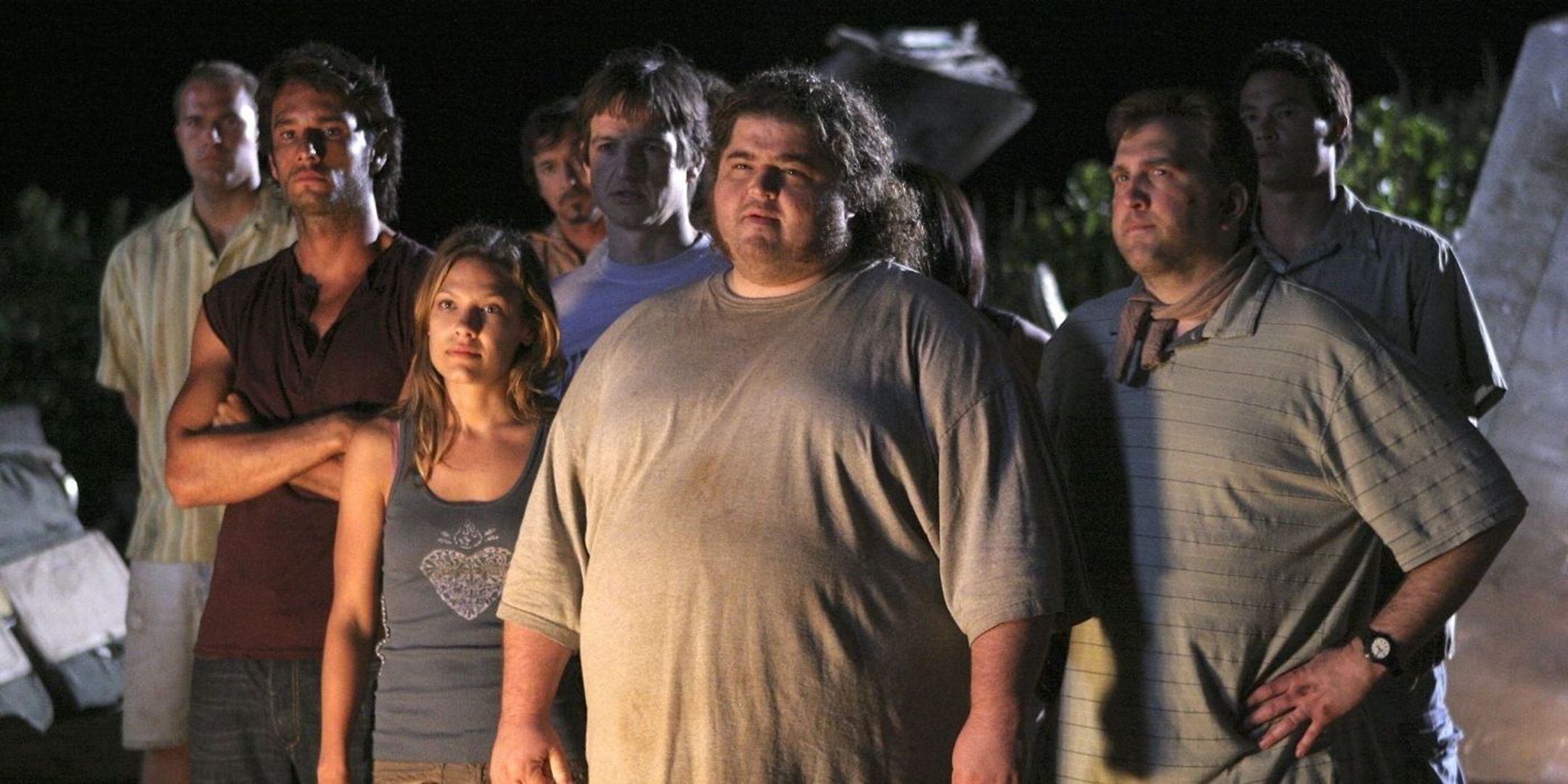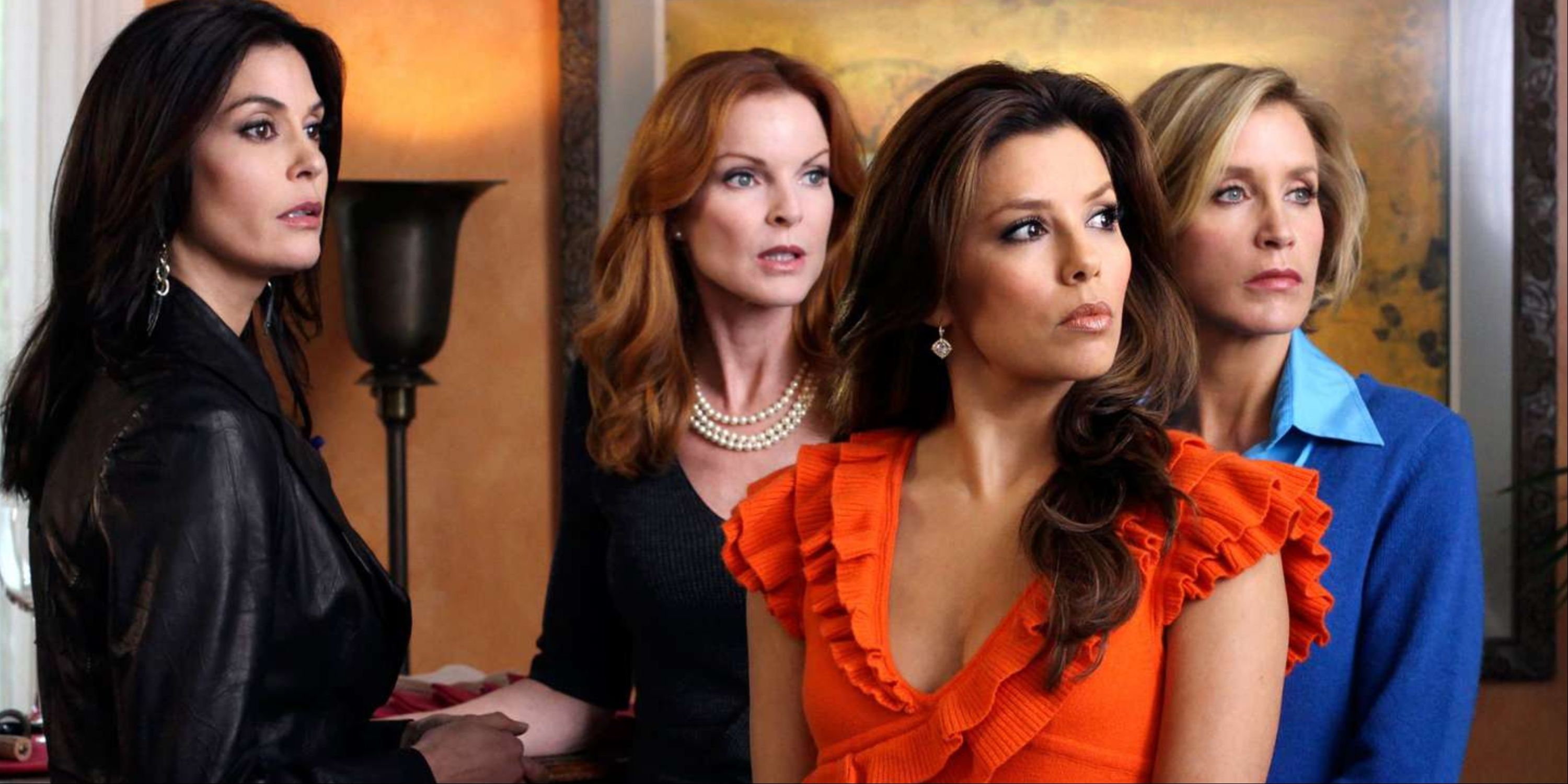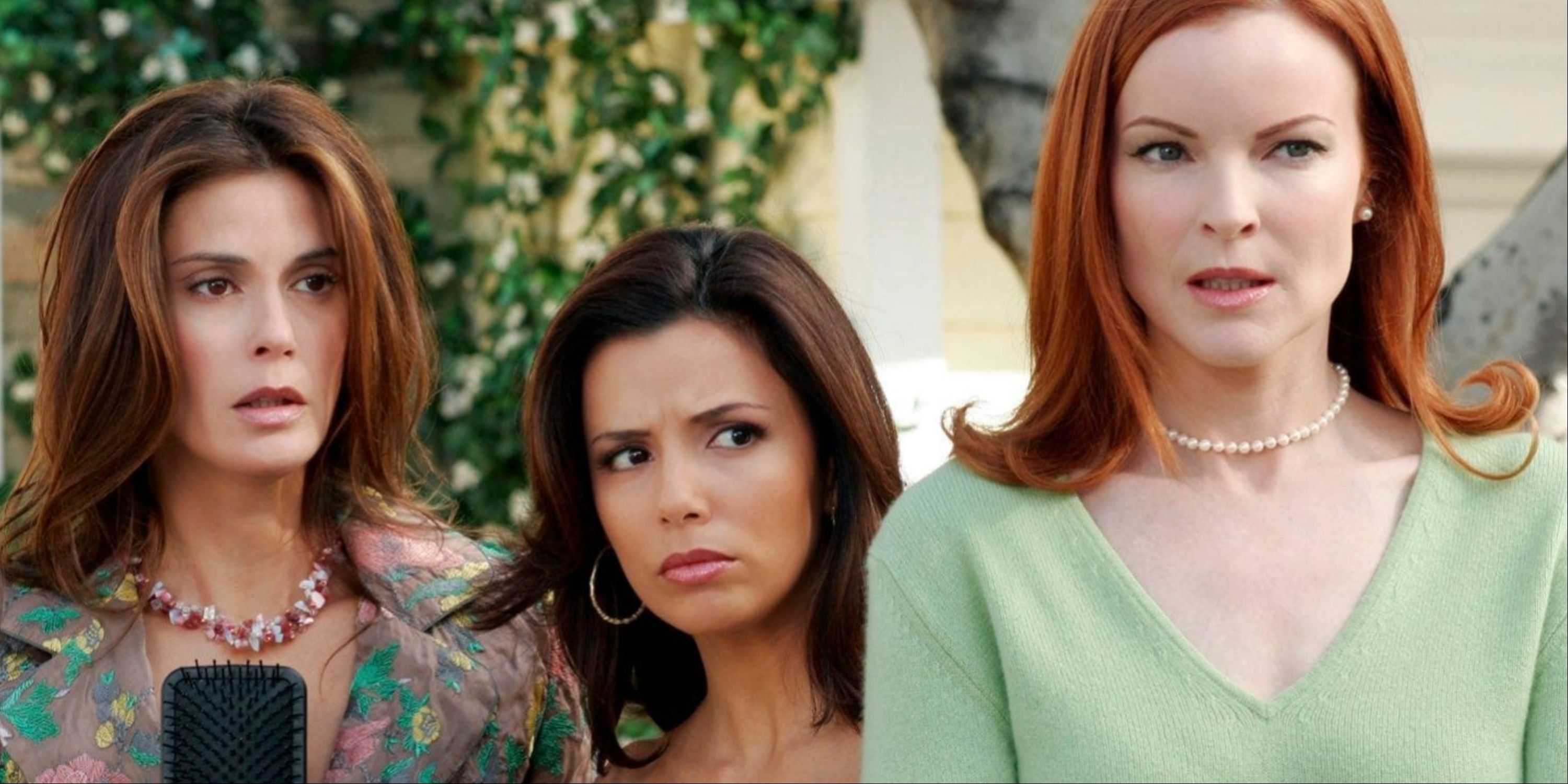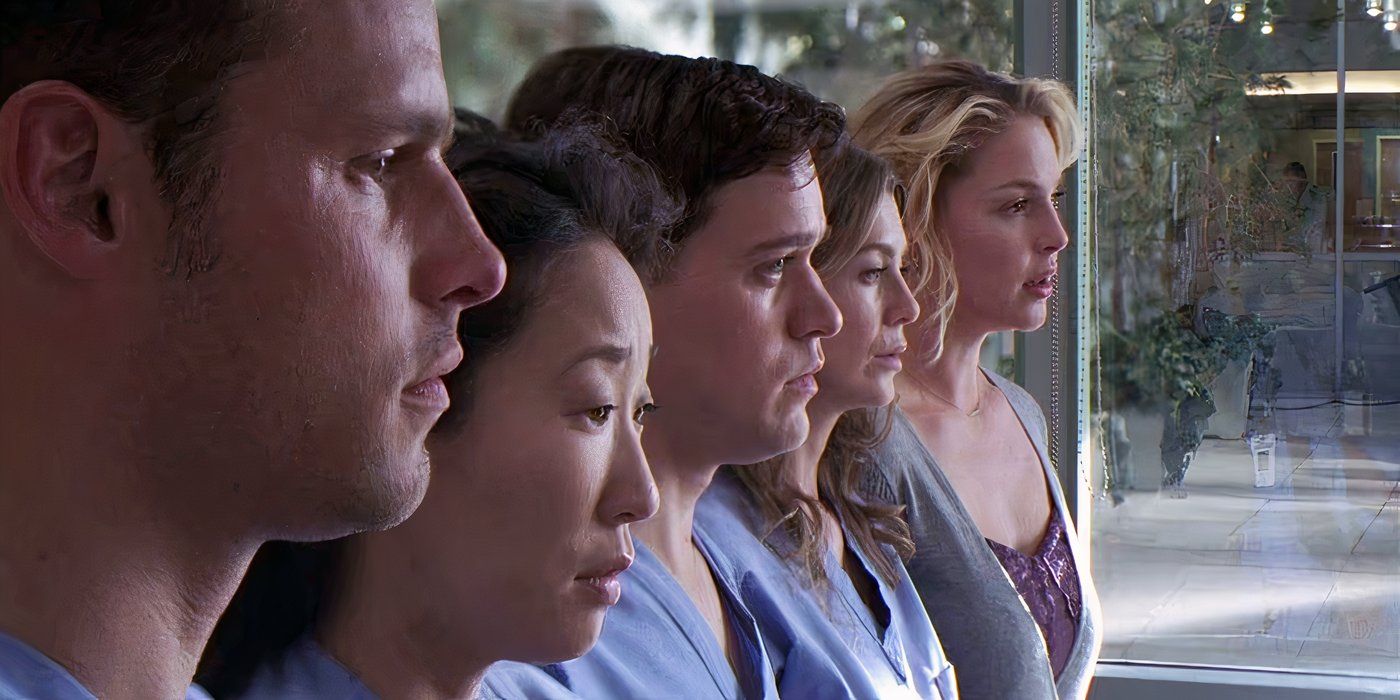![]()
As a die-hard TV enthusiast, I can’t help but marvel at the dominance and success of ABC, a network that currently broadcasts hit shows like “The Rookie,” “Abbott Elementary,” and the timeless “Bachelor” franchise, all under the wing of the mighty Walt Disney Company. However, it was two decades ago during the 2004-2005 television season that ABC truly cemented its place in TV history. That year saw the birth of three groundbreaking series – “Lost,” “Desperate Housewives,” and “Grey’s Anatomy” – which not only boosted ABC’s viewership but also left an indelible mark on television as we know it, forever reshaping the landscape of small-screen entertainment.
Each major television network tends to have a hit premiere in most television seasons, but ABC achieved something extraordinary 20 years ago by launching three successful shows. This feat hasn’t been repeated since then. Shows like “Lost,” “Desperate Housewives,” and “Grey’s Anatomy” became cultural phenomena, with “Lost” becoming an international sensation and one of the most debated shows ever, while “Desperate Housewives” redefined its genre and left a lasting impact. Interestingly, “Grey’s Anatomy,” which first aired as a mid-season replacement on ABC 20 years ago, is still running today and remains the longest-running scripted primetime show currently airing on ABC. Despite their age, these shows continue to captivate audiences and are often discussed among the greatest TV series of all time. However, one may wonder what made these shows so popular and how they shaped the television landscape.
Lost Became an Overnight Sensation Full of Mysteries
Lost Redefined the Meaning of Cliffhanger
Among the three shows premiered during the 2004-2005 television season on ABC, it was “Lost” that aired first. This series, inspired by Tom Hanks’ movie “Cast Away,” tells the story of a group of individuals who find themselves stranded on a deserted island after their plane crashes. The production of “Lost” was initially deemed too expensive and complex, with its two-part pilot being the costliest in ABC history. Despite these challenges, the risk proved worthwhile as “Lost” quickly became a sensation, captivating audiences who remain devoted fans to this day, even fifteen years after the series finale.
Though numerous viewers continue to debate over the quality of certain seasons and the finale’s merit, it’s undeniable that Lost has indelibly marked the landscape of television. By redefining the art of cliffhangers and leaving viewers pondering more questions than they had answers for with each episode, the show significantly impacted the way series are structured. Furthermore, it heavily invested in a self-contained mythology that sparked a wave of related media to maintain viewer engagement with the narrative.
As a die-hard cinema enthusiast, I can’t help but reminisce about the captivating journey of “Lost.” Unlike today’s binge-watching culture, it thrived on the anticipation of one episode per week. This format left us hanging on cliffhangers, sparking intense discussions, theory-building sessions, and deepening our investment in the storyline.
However, it was a daring gamble for ABC to air “Lost.” In fact, they were willing to take such a risk that they dismissed Lloyd Braun, the executive who initially approved the pilot episode. That’s how groundbreaking this show truly was!
Fortunately, Braun was swiftly exonerated and reinstated as an executive at ABC, and “Lost” went on to become one of the finest and most thriving television shows ever produced. The influence of “Lost” is still felt today, with numerous new series delving into mystery and constructing intricate narratives to keep viewers in suspense until the finale. The mystery genre underwent a significant transformation following the debut of “Lost” on ABC, though another ABC program also left its mark on the genre.
Desperate Housewives Shattered the Glass Ceiling
Desperate Housewives Broke Stereotypes
Two decades ago, a prime-time TV series featuring an all-female cast was less frequent. However, “Desperate Housewives” demonstrated that stories centered around women could be equally engaging and profitable as those with male leads. The show uniquely combined elements of mystery, humor, and personal drama, a combination not often seen in television at the time. This innovative approach significantly impacted the mystery genre for the better.
Twenty years ago, I was captivated by shows that defied the norm, and one such series that truly stood out was “Desperate Housewives.” This remarkable show shattered the glass ceiling, presenting an extraordinary ensemble cast composed of dynamic women, each with their distinctive narratives and personalities.
Though it may not seem as revolutionary today, back then, it was extraordinary to see women taking center stage in their stories. Shows like “Sex and the City” and “Charmed” had already paved the way for all-female strong ensemble casts, but “Desperate Housewives” took this concept to unprecedented heights.
The popular TV series “Desperate Housewives” debuted shortly following “Lost.” Although the enigma in “Lost” was significantly more intricate and revolutionary, “Desperate Housewives” maintained viewer interest through elements of mystery, crime, and drama. Unlike conventional mystery shows, “Desperate Housewives” offered a fusion of soap opera, drama, comedy, and mystery, resulting in a distinctive narrative style that contributed to the show’s widespread appeal. By portraying complex female characters and delving into their family dynamics, challenges, aspirations, and dreams, “Desperate Housewives” demonstrated that such themes could form the foundation of an engrossing television program.
The popularity of “Desperate Housewives” gave rise to a variety of associated content such as a video game, soundtrack album, and even books – both official companions and unauthorized ones. Furthermore, dolls and fragrances featuring the characters were produced, while the show’s style and fashion trends significantly impacted women’s wardrobes, underscoring its cultural impact and enduring legacy.
Grey’s Anatomy Redefined the Medical Drama Genre
Grey’s Anatomy Also Spawned Two Spin-Off Series
As a dedicated movie critic, I can confidently assert that it’s highly unlikely to encounter someone who hasn’t heard of the renowned medical drama, “Grey’s Anatomy.” Over the past few years, this series has undeniably left an indelible mark on the genre. Initially introduced as a mid-season replacement for ABC in the 2004-2005 season, it swiftly amassed a devoted fanbase that propelled the show into its coveted primetime slot.
As a dedicated cinephile, I can say that Grey’s Anatomy is more than just a medical drama; it’s a compelling exploration into the lives of its characters, starting with Meredith Grey during her residency at Seattle Grace Hospital. The series delves deep into not only their professional journeys but also their personal struggles. It masterfully portrays the intense workload and emotional turmoil that comes with working in such an environment, making viewers genuinely care for each character. From the residents to the senior staff, everyone’s story becomes a vital part of the narrative, even the patients who significantly impact the unfolding tale.
Primarily, “Grey’s Anatomy” gained widespread fame through the central romance between Meredith and Derek, often referred to as “McDreamy.” However, the series eventually shifted focus from this main love story, delving into the numerous dramas of its diverse cast. Over time, it introduced new characters while also bidding farewell to others at the end of each season. Remarkably, “Grey’s Anatomy” remains one of ABC’s most watched shows after two decades, holding the title as the longest-running scripted primetime show currently airing on ABC, now in its 21st season.
As a die-hard movie buff, let me tell you that Grey’s Anatomy wasn’t just a groundbreaking series; it gave birth to two more shows as well. Though these spin-offs didn’t quite match the iconic status or impact of Grey’s Anatomy, they certainly carved out their own niche and gathered their dedicated fanbase. Beyond shaping the medical drama genre, Grey’s Anatomy catapulted its creator, Shonda Rhimes, into a household name that echoes in living rooms everywhere.
ABC Reached New Heights With the 2004–2005 TV Season
This Season Influenced Television Like No Other






During the 2004-2005 TV season, a number of shows were introduced that have endured as classics and continue to resonate, such as “House” and “The Office.” Nevertheless, it was ABC that truly shone during this period. Prior to the 2004-2005 TV season, ABC was lagging in ratings, but with the success of “Lost,” “Desperate Housewives,” and “Grey’s Anatomy,” they soared back to the top of the network rankings.
I, being part of the dynamic duo alongside Lloyd Braun and Susan Lyne, boldly greenlit three groundbreaking shows that left an indelible mark on ABC, a legacy yet to be rivaled since. Initially, our daring moves led to some turbulence, as we found ourselves let go from ABC due to their concerns about the direction we were steering. However, it became evident that we had a keen understanding of what makes great television, and our dismissal was short-lived. We were eventually reinstated, and our shows served as a turning point for ABC, ushering in a new era.
The show “Lost” significantly influenced the direction of mystery series by setting a captivating standard that many attempted to emulate. Yet, as fans can attest, there’s no other show quite like “Lost,” which still maintains a dedicated following and provides endless discussions about its mysteries, theories, and plotlines. On the other hand, “Desperate Housewives” demonstrated masterfully how mystery and humor could seamlessly intertwine to produce groundbreaking television, while also showing that women’s stories could lead successful shows. Interestingly, “Desperate Housewives” also inspired multiple remakes across South America.
The groundbreaking series “Grey’s Anatomy” was the pioneering work of Shondaland Productions, playing a crucial role in transforming the company into the powerhouse it is known for today. Subsequent hit shows like “How to Get Away with Murder,” “Bridgerton,” and others would likely not have come to fruition without the success achieved by “Grey’s Anatomy.” Moreover, the popularity of “Lost,” “Desperate Housewives,” and “Grey’s Anatomy” significantly boosted ABC’s status as a major player in television broadcasting and set the stage for future developments in the industry.
Read More
- 50 Ankle Break & Score Sound ID Codes for Basketball Zero
- Who Is Harley Wallace? The Heartbreaking Truth Behind Bring Her Back’s Dedication
- 50 Goal Sound ID Codes for Blue Lock Rivals
- Mirren Star Legends Tier List [Global Release] (May 2025)
- KPop Demon Hunters: Real Ages Revealed?!
- Elden Ring Nightreign Enhanced Boss Arrives in Surprise Update
- 100 Most-Watched TV Series of 2024-25 Across Streaming, Broadcast and Cable: ‘Squid Game’ Leads This Season’s Rankers
- Here’s Why Your Nintendo Switch 2 Display Looks So Blurry
- How to Cheat in PEAK
- Death Stranding 2 Review – Tied Up
2025-04-21 21:07